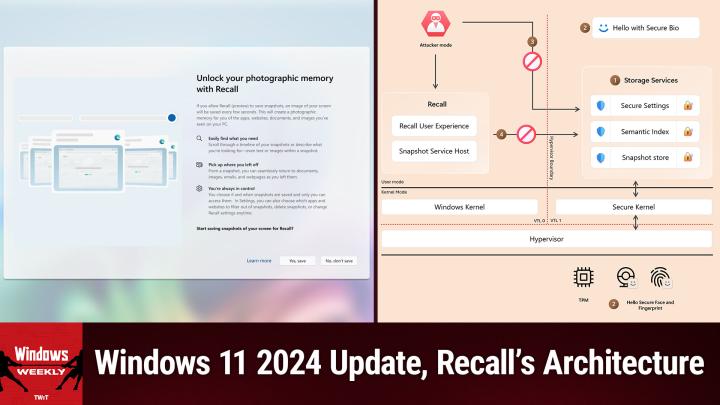ARM's Bid for Intel May Allude to the End of an Era in Chip Design
AI created, human edited
In an intriguing development that could reshape the semiconductor industry, recent reports suggest that ARM, the UK-based chip design company, recently made an offer to acquire Intel's chip design division. This news, discussed in depth on a recent episode of the Windows Weekly podcast, has sent shockwaves through the tech analyst world and raised questions about the future of one of America's most iconic technology companies.
The Potential Breakup of Intel
On a recent episode of Windows Weekly, hosts Leo Laporte, Paul Thurrott, and Richard Campbell Campbell delved into the implications of this potential deal, comparing it to the breakup of other industrial giants like US Steel and Standard Oil. As Thurrott put it, "They're the US Steel of the chip-making markets."
The hosts speculated that this move could be part of a larger plan to break up Intel into separate entities:
- ARM acquiring the chip design division
- Qualcomm potentially interested in Intel's foundries (chip manufacturing facilities)
Campbell noted that this type of breakup is "what happens to old companies who can't modernize," suggesting that Intel's struggles to adapt to the rapidly changing semiconductor landscape may have led to this situation.
The Strategic Implications
The potential acquisition of Intel's chip design division by ARM could have far-reaching consequences:
- Improved Emulation: With access to Intel's x86 architecture, ARM could potentially create superior emulation solutions, allowing ARM-based devices to run x86 software more efficiently.
- Competition with Qualcomm: Thurrott speculated that this move might be a strategic play by ARM to gain leverage over Qualcomm in the ongoing dispute over x86 emulation in Snapdragon chips.
- National Security Concerns: The hosts discussed the potential national security implications, noting that the US government might intervene to ensure that critical chip manufacturing capabilities remain in the United States.
The Future of Computing
If this deal goes through, it could signal a significant shift in the computing landscape. Laporte half-jokingly suggested that "All your future computers will be ARM-based, emulating x86," highlighting the potential for ARM to become the dominant architecture in personal computing.
Market Reactions and Timing
The hosts noted that Intel's stock price has been declining since early 2024, making the company vulnerable to such offers. They speculated that this public announcement might be part of a carefully orchestrated plan to facilitate a "graceful dismantling" of Intel.
As Campbell put it, "You use these public announcements to show these pieces are in place. None of this is a surprise."
What's Next?
While Intel has reportedly rejected ARM's initial offer, the hosts agreed that this story is far from over. As Thurrott noted, "You could wake up any day... this could happen to an announcement tomorrow, could happen six months from now."
The potential breakup of Intel represents a seismic shift in the American tech industry, with implications for everything from personal computing to national security. As this story continues to develop, it's becoming clear that the semiconductor landscape is on the brink of a major transformation.
For a more in-depth discussion of this topic and other tech news, be sure to listen to the full episode of Windows Weekly. The podcast’s hosts provide expert insights and engaging commentary on the latest developments in the world of Microsoft and PC makers.
